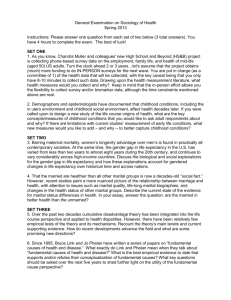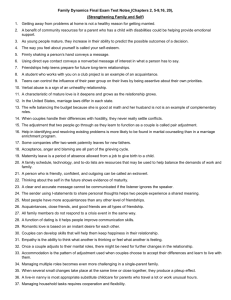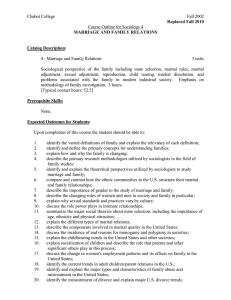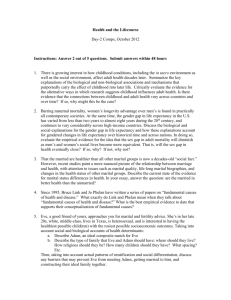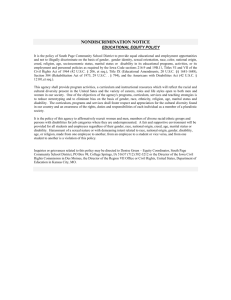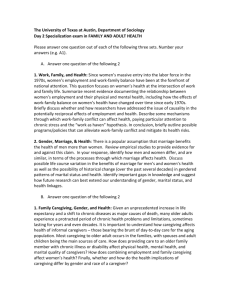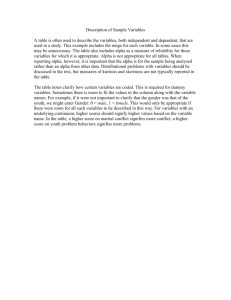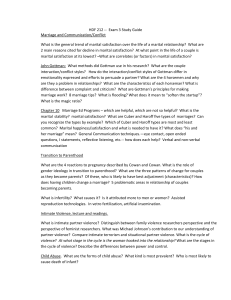SPECIALIZED COMPREHENSIVE QUESTIONS, SPRING 2012
advertisement
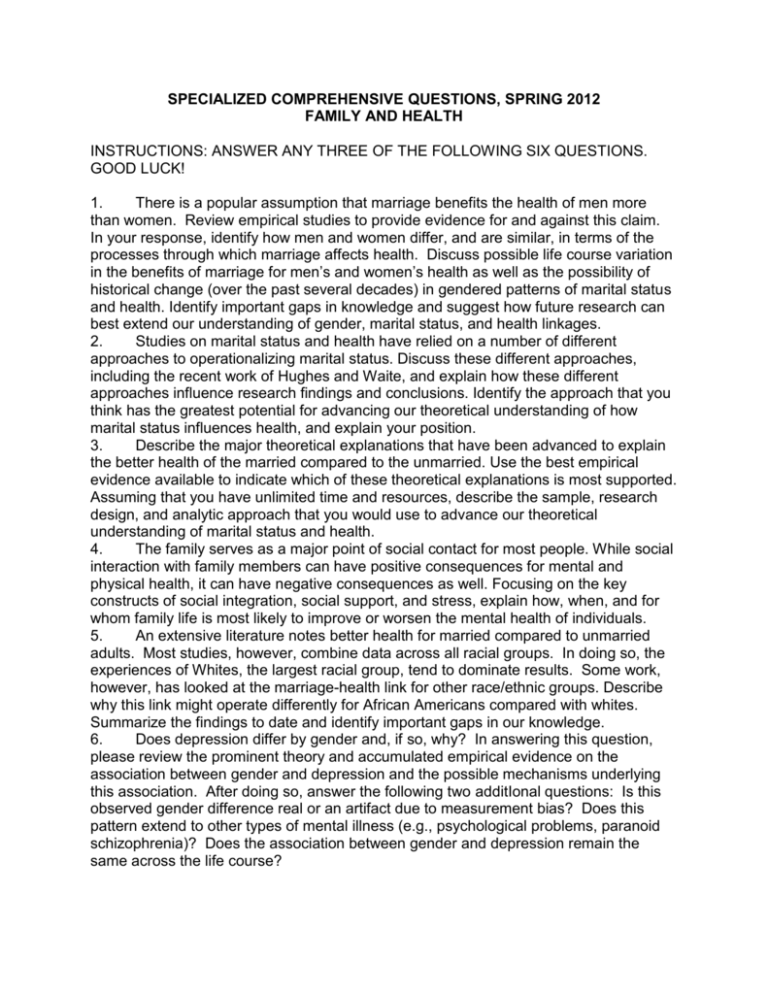
SPECIALIZED COMPREHENSIVE QUESTIONS, SPRING 2012 FAMILY AND HEALTH INSTRUCTIONS: ANSWER ANY THREE OF THE FOLLOWING SIX QUESTIONS. GOOD LUCK! 1. There is a popular assumption that marriage benefits the health of men more than women. Review empirical studies to provide evidence for and against this claim. In your response, identify how men and women differ, and are similar, in terms of the processes through which marriage affects health. Discuss possible life course variation in the benefits of marriage for men’s and women’s health as well as the possibility of historical change (over the past several decades) in gendered patterns of marital status and health. Identify important gaps in knowledge and suggest how future research can best extend our understanding of gender, marital status, and health linkages. 2. Studies on marital status and health have relied on a number of different approaches to operationalizing marital status. Discuss these different approaches, including the recent work of Hughes and Waite, and explain how these different approaches influence research findings and conclusions. Identify the approach that you think has the greatest potential for advancing our theoretical understanding of how marital status influences health, and explain your position. 3. Describe the major theoretical explanations that have been advanced to explain the better health of the married compared to the unmarried. Use the best empirical evidence available to indicate which of these theoretical explanations is most supported. Assuming that you have unlimited time and resources, describe the sample, research design, and analytic approach that you would use to advance our theoretical understanding of marital status and health. 4. The family serves as a major point of social contact for most people. While social interaction with family members can have positive consequences for mental and physical health, it can have negative consequences as well. Focusing on the key constructs of social integration, social support, and stress, explain how, when, and for whom family life is most likely to improve or worsen the mental health of individuals. 5. An extensive literature notes better health for married compared to unmarried adults. Most studies, however, combine data across all racial groups. In doing so, the experiences of Whites, the largest racial group, tend to dominate results. Some work, however, has looked at the marriage-health link for other race/ethnic groups. Describe why this link might operate differently for African Americans compared with whites. Summarize the findings to date and identify important gaps in our knowledge. 6. Does depression differ by gender and, if so, why? In answering this question, please review the prominent theory and accumulated empirical evidence on the association between gender and depression and the possible mechanisms underlying this association. After doing so, answer the following two additIonal questions: Is this observed gender difference real or an artifact due to measurement bias? Does this pattern extend to other types of mental illness (e.g., psychological problems, paranoid schizophrenia)? Does the association between gender and depression remain the same across the life course?
